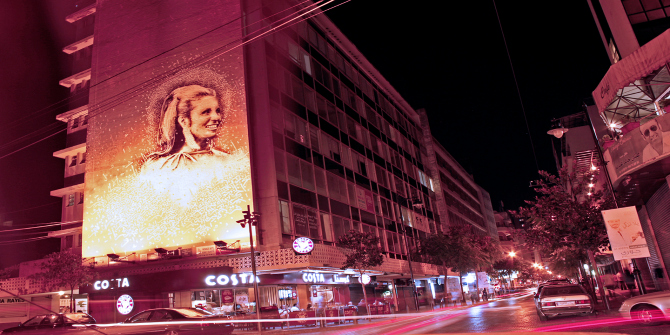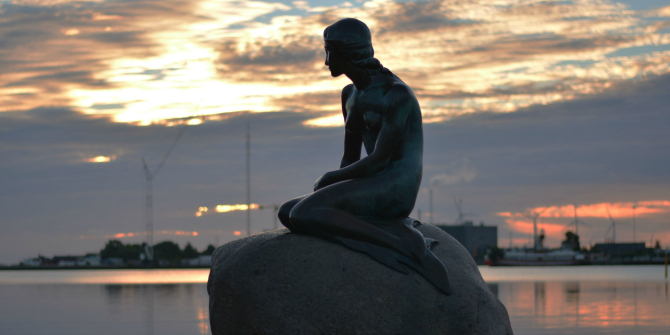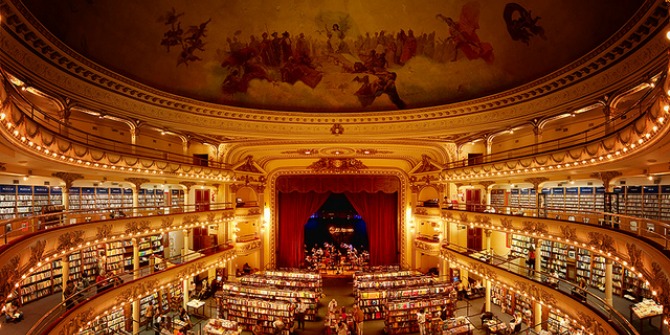In this bookshop guide, Yasmine Obeid takes us on a tour of some of the best literary hubs in Beirut, Lebanon. If you have bookshops you’d like to recommend in a particular city, further information about contributing follows this article.
Beirut is known as an intellectual hub in the Arab world, renowned globally for its rich culture. As one of the oldest cities in the world, a melting pot of several civilisations and a publishing centre for the Arab world, it is no surprise that Beirut has nurtured a wealth of writers, philosophers, students and readers. The American University of Beirut and later the Beirut Arab University and the Lebanese University played significant roles.
As one of the oldest cities in the world, a melting pot of several civilisations and a publishing centre for the Arab world, it is no surprise that Beirut has nurtured a wealth of writers, philosophers, students and readers.
Since the late 1940s, Beirut became home to renowned intellectuals from various places in the Arab world, mainly the Palestinians who fled the Nakba in 1948 and other Arabs who came from the unstable and repressive political regimes in their countries during that period. Indeed, Beirut witnessed a golden era, an intellectual nahda (renaissance) in the ’60s. This emerged due to the increase of publishing houses and newspapers, theatres, literature hubs, research centres, artistic galleries and festivals. Beirut became a productive space for ideas, political expressions and debates. Influential literary figures including Palestinian writers Mahmoud Darwish and Ghassan Kanafani and Lebanese writer Khalil Hawi all lived in the city at different points in their careers.
Despite the significant changes that happened to Beirut’s intellectual scene during and after the civil war (1975-1990), the city is still filled with alternative literary spaces. There is no better example than Aaliyah’s Books, located in Gemmayze. Originally started as a small bookshop in the back of a coffee shop, the business grew to merge the two concepts. It now runs as a bookshop and a cafe/bar, with events taking place every week, known for its Friday-night jazz.

When it comes to their book collection, Aaliyah’s stocks both new and second-hand titles. Most of their second-hand books are donated by those who frequented the place, and then moved away from the city. The owner of Aaliya’s Books explained to me that, due to the drastic economic crisis in the country, the shop suffered with a loss in book sales and struggles in supplying their book collection, however, the business has weathered these difficulties.
It is also part of [Aaliya’s] mission to amplify the voices of the marginalised, including queer Arabs.
Though the place gets lively at night, it keeps its origins at heart, hosting writing workshops, book launches and making itself a space for discussion and debate. It is also part of their mission to amplify the voices of the marginalised, including queer Arabs. Aaliya’s also makes reading accessible without having to spend money through their “take a book”/”leave a book” shelf.
In another area, facing the Sanayeh public park, the Lebanese National Library (Al Maktaba Al Wataniya) draws visitors with its high-ceiling Mediterranean architecture and lush garden. The building was constructed during the Ottoman era in the early 1900s. The Library has multiple floors and houses a unique collection of religious books from the 16th century, displayed in closed glass vitrines. Their range of books (in all three of Lebanon’s languages: Arabic, English, and French) is vast, encompassing early 19th-century archival magazines and books on marine turtles in Qatar. It also includes special books on the history of the Levant countries and Egypt.

Unfortunately, the economic crisis and the government’s strong austerity affected the library. When I visited it, it wasn’t be possible to go into the basement floors, due to the cut-off electricity. The institution is severely underfunded, and only opens from 8:30-2pm on weekdays which limits foot traffic.
After my trip to the library, I continued walking west until I made it to the heart of Beirut, Hamra. Once in Hamra, I made it up the stairs of a small building to the first floor where my next destination of the day waited; Barzakh.
Barzakh is a relatively new literary space, having only opened two years ago. Despite that, it has gained lots of popularity for its café, as well its for selection of books for sale. The light atmosphere of the café makes it ideal for work and study but as well as a meeting place for lunch with friends. Upon first walking in, I could hear the light music of Bossa Nova jazz playing in the shop. It’s hard to know where to explore first, the library section covered with dimly-lit shelves of books, or the cafe area with plants and dried flowers decorating it? (I opted for the books first).
The majority of their collection are second-hand books that have been donated, which includes some foreign-language texts as well as many in French, Arabic and English.
The books on offer cover a wide variety of genres from law and history to young adult fiction, to theatre. The majority of their collection are second-hand books that have been donated, which includes some foreign-language texts as well as many in French, Arabic and English. Their new books that aren’t donated are gotten from Egyptian and Lebanese publishing houses. Alike Aaliyah’s, Barzakh hosts events, including music, book launches and talks, confirming its place as another vibrant intellectual space in the city.

Despite the hardships that Beirut is going through, it remains a space known for its diversity, hybridity and richness. It has a space for everyone. It is a capital of contradiction and resilience, making a home for education, literacy, fashion and art. Both the well-established and emerging literary spaces in the city are a crucial part of that cultural richness and deserve our support to keep the city alive.
Note: This bookshop guide gives the views of the author, and not the position of the LSE Review of Books blog, or of the London School of Economics and Political Science.
Banner Image: Al Amin Mosque and St. Georges Church in Beirut Downtown ©Ali Chehadeon Shutterstock
Do you know a place with great bookshops? If there’s a city or town with bookshops that you think other students and academics should visit, then this is your chance to tell us all about it.
As part of a regular feature on LSE Review of Books, we’re asking academics and students to recommend their favourite three or four bookshops in a particular city, with the aim of building an exciting online series for our book-loving community of readers the world over.
Bookshops could be academic, alternative, multilingual, hobby-based, secret or underground institutions, second-hand outlets or connected to a university. We’d like to cover all world regions too and are particularly keen to feature cities outside of Europe and North America.
If something comes to mind, we’re looking for a brief introduction about the city and around 150 words per bookshop, detailing why each one is a must-see. Our editorial team can then find suitable photos and links to accompany the piece, though you’re welcome to supply these too. We only ask that you focus on just one city or region, and three or four bookshops within it.
Email us if you’d like to contribute: lsereviewofbooks@lse.ac.uk







